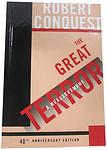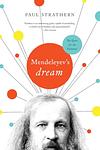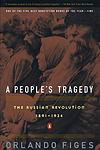The Greatest British "Russia, Nonfiction" Books of All Time
Click to learn how this list is calculated.
This list represents a comprehensive and trusted collection of the greatest books. Developed through a specialized algorithm, it brings together 305 'best of' book lists to form a definitive guide to the world's most acclaimed books. For those interested in how these books are chosen, additional details can be found on the rankings page.
Genres
The category of "Russia" in books typically encompasses literature that explores the history, culture, politics, and society of Russia. This can include works of fiction, non-fiction, memoirs, and biographies that delve into the complexities of Russian life, from the tsars and the Soviet era to contemporary Russia. These books may also examine the country's relationship with other nations, its artistic and literary traditions, and its impact on global events. Overall, the category of "Russia" offers a rich and diverse range of books that provide insight into one of the world's most fascinating and complex nations.
Countries
Date Range
Reading Statistics
Click the button below to see how many of these books you've read!
Download
If you're interested in downloading this list as a CSV file for use in a spreadsheet application, you can easily do so by clicking the button below. Please note that to ensure a manageable file size and faster download, the CSV will include details for only the first 500 books.
Download-
1. The Great Terror by Robert Conquest
"The Great Terror" is a comprehensive analysis of Joseph Stalin's purges in the Soviet Union during the 1930s. The book delves into the brutal and systematic elimination of potential political rivals, intellectuals, and ordinary citizens, who were falsely accused of espionage, sabotage, or being counter-revolutionary. It provides a detailed account of the show trials, executions, and forced labor camps, shedding light on one of the darkest periods in Soviet history.
The 2593rd Greatest Book of All Time -
2. Chronicles of Wasted Time by Malcolm Muggeridge
"Chronicles of Wasted Time" is an autobiography that explores the life and thoughts of a British journalist and satirist during the 20th century. The book provides a critical perspective on the political and social changes of the time, including the author's experiences in India, Russia, and during World War II. The author also delves into his personal journey from agnosticism to Christianity, offering a profound reflection on faith and spirituality.
The 2598th Greatest Book of All Time -
3. The Origins Of Totalitarian Democracy by J. L. Talmon
The book explores the historical development of the concept of totalitarian democracy, a political system that combines an official ideology with an authoritarian regime, claiming to represent the will of the people. It delves into the paradoxical nature of this form of government, which seeks to achieve a utopian ideal of democracy through undemocratic means. The author traces the roots of this phenomenon back to the Enlightenment and the French Revolution, examining the ideological underpinnings and the evolution of political thought that led to the emergence of totalitarian regimes in the 20th century. The work is a critical analysis of how revolutionary movements can devolve into oppressive systems that justify their actions in the name of democracy and the public good.
The 3279th Greatest Book of All Time -
4. Mendeleyev's Dream by Paul Strathern
This book traces the history of chemistry from the ancient philosophers' wild speculations about the composition of the universe to the creation of the periodic table by Dmitri Mendeleyev. Through a blend of storytelling and science, it explores the development of atomic theory and chemical elements, leading up to Mendeleyev's groundbreaking dream in which he envisioned the periodic table in its modern form. The narrative delves into the lives and discoveries of key figures in the field of chemistry, illustrating how their work contributed to our understanding of the elements that make up the world around us.
The 3416th Greatest Book of All Time -
5. Russian Thinkers by Isaiah Berlin
The book is a collection of essays exploring the ideas of key 19th-century Russian intellectuals who shaped the social, political, and cultural contours of their time. It delves into the works and impact of thinkers such as Alexander Herzen, Ivan Turgenev, and Leo Tolstoy, examining their contributions to debates on Russian identity, the role of the intelligentsia, and the future of their nation. The author critically analyzes the ideological conflicts between Westernizers and Slavophiles and the struggle to reconcile Western European liberal thought with uniquely Russian conditions, offering insights into the philosophical underpinnings of Russia's historical trajectory.
The 3613th Greatest Book of All Time -
6. The Reason Why by Cecil Woodham-Smith
"The Reason Why" is a historical narrative that explores the circumstances leading to the infamous Charge of the Light Brigade during the Crimean War. The book delves into the lives and personalities of key figures involved, including Lord Cardigan and Lord Lucan, highlighting their personal rivalries, political machinations, and the miscommunications that led to the disastrous military action. The narrative is meticulously researched and provides a detailed account of the event, shedding light on the complexities of British military bureaucracy and the tragic consequences of poor leadership.
The 4916th Greatest Book of All Time -
7. In Siberia by Colin Thubron
"In Siberia" is a travelogue that takes the reader on a profound journey through the vast and enigmatic Siberian landscape. The author traverses the region, from the Ural Mountains to the Arctic coast, exploring its desolate beauty and the resilience of its inhabitants amidst harsh climates and historical upheavals. Along the way, he encounters remnants of the Soviet era, indigenous cultures clinging to their traditions, and the poignant traces of exile and punishment that have marked the land. The narrative is a rich tapestry of history, personal encounters, and vivid descriptions that capture the soul of a place often synonymous with remoteness and exile.
The 5517th Greatest Book of All Time -
8. Midnight In Chernobyl by Adam Higginbotham
"Midnight In Chernobyl" is a non-fiction book that tells the story of the 1986 Chernobyl nuclear disaster. The book provides a detailed account of the events leading up to the explosion, the immediate aftermath, and the long-term effects of the disaster. It also explores the political and social context of Soviet Ukraine at the time, and the impact that the disaster had on the country and the world. The book draws on interviews with survivors, officials, and experts, as well as archival documents and scientific research, to provide a comprehensive and compelling narrative of one of the worst nuclear accidents in history.
The 6075th Greatest Book of All Time -
9. A People's Tragedy by Orlando Figes
"A People's Tragedy" is an in-depth exploration of the Russian Revolution from 1891 to 1924. The book offers a comprehensive study of the Revolution's roots, its progression, and its aftermath, from the famine that gripped Russia in the 1890s, through the abdication of Tsar Nicholas II, to the establishment of the Bolshevik regime and the death of Lenin. The author uses a broad range of sources, including personal letters, diaries, and government documents, to present a detailed, humanized view of the Revolution's impact on everyday individuals, bringing to life the experiences of peasants, workers, soldiers, and intellectuals.
The 8113th Greatest Book of All Time -
10. The Myth Of The Strong Leader by Archie Brown
This book critically examines the widespread belief that strong, dominant leadership is the most effective form of governance, arguing instead for the value of leaders who are collaborative, collegial, and democratic. Through a comprehensive analysis of political leaders across different eras and countries, the work challenges the conventional wisdom that the most successful leaders are those who wield power in an autocratic or charismatic manner. Instead, it posits that truly transformative leaders are those who prioritize the empowerment of their teams and the broader populace, demonstrating that effective leadership is less about consolidating power in the hands of the few and more about distributing it in a way that fosters collective progress and democratic engagement.
The 9576th Greatest Book of All Time
Reading Statistics
Click the button below to see how many of these books you've read!
Download
If you're interested in downloading this list as a CSV file for use in a spreadsheet application, you can easily do so by clicking the button below. Please note that to ensure a manageable file size and faster download, the CSV will include details for only the first 500 books.
Download








